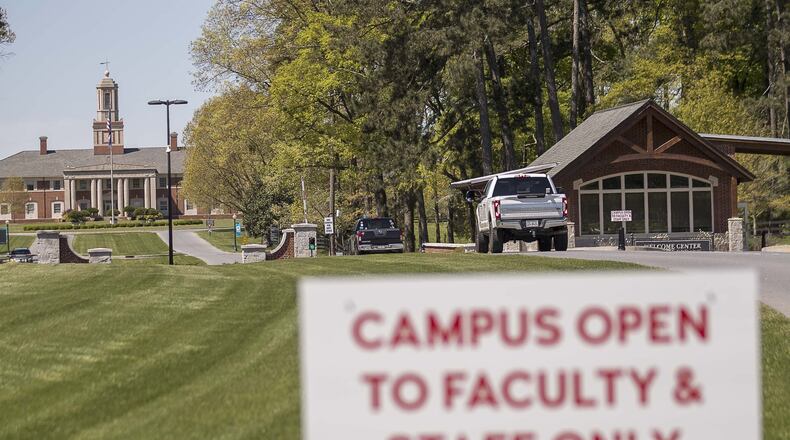The federal government Thursday announced more than $6.28 billion will flow to U.S. colleges and universities to distribute cash grants to low-income college students experiencing hardships as a result of the coronavirus pandemic.
The grants are coming out of the nearly $31 billion Congress allocated to the U.S. Department of Education for students, K-12 schools, and higher education institutions under the Coronavirus Aid, Relief, and Economic Security (CARES) Act.
More than $300 million is bound for public and private campuses and technical colleges throughout Georgia, half of which must go to emergency student aid. Students can use the grants to cover course materials and technology as well as food, housing, health care, and childcare. Colleges and universities will determine which students will receive the cash grants. Allocations to campuses were determined largely on the number of full-time students who qualify for Pell Grants, which are based on family income.
While $300 million appears a significant sum, Jennifer Lee, higher education policy analyst for the Georgia Budget & Policy Institute, said, “That money is going to help, but it is going to go fast.”
These new federal dollars are not enough to avoid the financial cliff that could be awaiting colleges from a possible recession and deep funding cuts. “Anyone in the University System is not looking at that pot of money as a big free-for-all to just spend,” said Lee. “They are going to be conservative in spending as there is going to be tough decision-making ahead as they anticipate the state budget.”
Georgia State, for instance, is getting $45 million from the CARES Act, half of which underwrites the student grants. That leaves the 50,000-student university with $22.5 million to help pay staff and plug holes in an annual budget of more than a billion dollars, said Lee.
The question for every school in Georgia: How big are those holes going to be?
Georgia colleges have to be cautious as it’s unclear whether enrollments will fall if students from financially fragile households can’t afford to return next year, said Lee, adding, “Even in the best of times, little things can knock low-income students off their path.”
“What’s best for students is at the center of every decision we make,” said U.S. Education Secretary Betsy DeVos in a statement. “That’s why we prioritized getting funding out the door quickly to college students who need it most. We don’t want unmet financial needs due to the coronavirus to derail their learning.”
College stimulus funding
Here is a sampling of Georgia colleges and universities and their CARES allocations:
University of Georgia, $24 million
Georgia Tech, $10 million
Georgia Southern, $23 million
University of North Georgia, $13.6 million
Georgia Gwinnett College $13.5 million
University of West Georgia, $10.8 million
Savannah State University, $6.3 million
Gwinnett Technical College, $5.3 million
Georgia College & State University, $4 million
Fort Valley State, $4 million
Among private campuses:
Emory University and the Savannah College of Art and Design, $8 million each
Clark Atlanta, $6 million
Mercer University, $5.3 million
Morehouse, $2.9 million
Spelman, $2.8 million
Berry College, $1.6 million
Agnes Scott, $1.15 million
Brenau, $1.3 million
Source: U.S. Department of Education
About the Author
Keep Reading
The Latest
Featured


